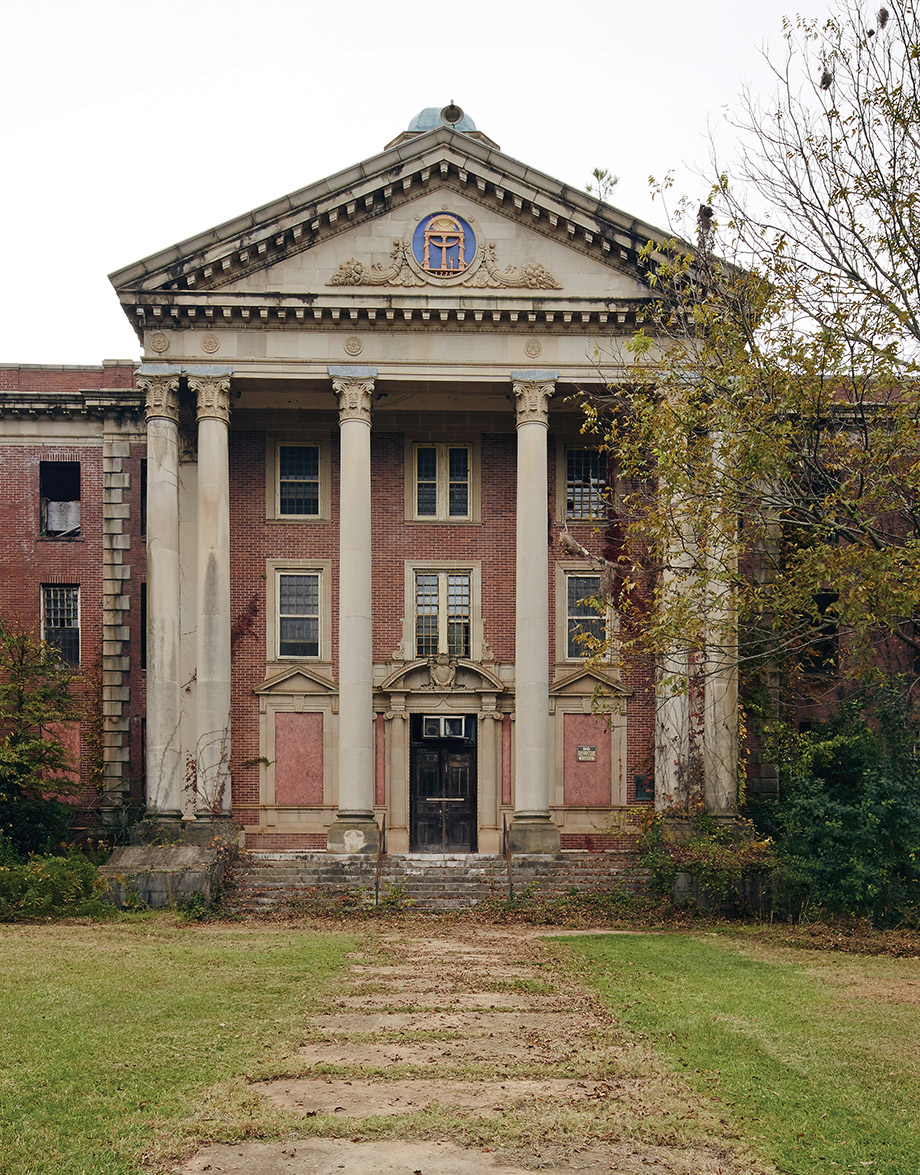
Historic Significance: Central State Hospital played a crucial role in the development of mental health care in the United States. It was one of the earliest institutions dedicated to the treatment of mental illness and served as a model for similar facilities across the country.
Architectural Features: The hospital’s architecture is diverse, ranging from grand, imposing buildings to more utilitarian structures. Many of the older buildings reflect the architectural styles of their respective periods, including Greek Revival and Victorian influences.
Treatment Innovations: Throughout its history, Central State Hospital has implemented various treatment approaches, reflecting the prevailing attitudes towards mental illness at different times. These approaches evolved from custodial care to more humane and therapeutic methods as advancements were made in psychiatry and psychology.
Challenges and Controversies: Like many psychiatric institutions of its time, Central State Hospital faced challenges related to overcrowding, inadequate funding, and allegations of mistreatment of patients. These issues underscored the broader societal struggles with mental health care and the ongoing efforts to improve treatment and conditions.
Community Impact: Central State Hospital has been a significant presence in the Milledgeville community for over a century and a half. Its influence extends beyond providing mental health services, as it has also been a major employer and contributor to the local economy.

Preservation Efforts: In recent years, there has been increased attention to preserving the historic buildings and grounds of Central State Hospital. Efforts are underway to repurpose some of the older structures while maintaining the integrity of the campus’s historic character.
Overall, Central State Hospital stands as a tangible reminder of the complex history of mental health care in the United States, reflecting both the progress made and the challenges that remain in ensuring compassionate and effective treatment for individuals living with mental illness.
Size and Layout: The hospital’s campus covers a vast area, encompassing hundreds of acres of land. Within these expansive grounds, there are numerous buildings, ranging from patient wards and treatment facilities to administrative offices and staff residences. The layout of the campus reflects the principles of therapeutic design prevalent during the periods of its construction, with an emphasis on natural light, open spaces, and recreational areas.
Notable Figures: Over its long history, Central State Hospital has been associated with several notable figures in the field of mental health care. Physicians, psychiatrists, and psychologists who worked at the hospital made significant contributions to the understanding and treatment of mental illness. Their efforts helped shape the hospital’s approach to patient care and contributed to advancements in the broader field of psychiatry.

Changing Demographics: Like many psychiatric institutions in the United States, Central State Hospital has seen shifts in its patient population over time. While it initially served primarily local residents, changes in mental health care policy and practice led to the admission of patients from a wider geographic area. This demographic shift had implications for the hospital’s operations and resources, as well as its role within the community.
Legacy and Memory: Central State Hospital holds a complex legacy, with both positive and negative aspects. While it provided care and treatment for countless individuals with mental illness over the years, it also faced criticism for its shortcomings and failures. Today, efforts to preserve the hospital’s history and legacy involve acknowledging and grappling with these complexities, recognizing the contributions made while also addressing the injustices and inequities experienced by some patients.
Community Engagement: The relationship between Central State Hospital and the surrounding community has evolved over time. While the hospital was once largely self-contained, with patients living and working within its grounds, changes in mental health care policy led to a greater emphasis on community-based treatment and integration. As a result, the hospital’s role within the community has shifted, but it remains an important institution with deep roots in the local area.
These additional details provide further insight into the rich history and complex legacy of Central State Hospital in Milledgeville, Georgia.
Cultural Impact: Central State Hospital has left a significant mark on popular culture, inspiring numerous books, films, and other forms of media. Some works depict the hospital’s history and operations, shedding light on the experiences of patients and staff. Others explore broader themes related to mental illness, treatment, and society’s attitudes towards psychiatric institutions.
Archival Resources: The hospital’s extensive archives contain a wealth of historical documents, including patient records, administrative records, photographs, and artifacts. These resources provide valuable insights into the daily life of the hospital, the experiences of patients and staff, and the evolution of mental health care practices over time. Researchers and historians have utilized these archives to deepen their understanding of Central State Hospital’s history and its impact on the field of mental health care.
Educational Opportunities: Central State Hospital has served as a training ground for generations of mental health professionals, including psychiatrists, psychologists, social workers, and nurses. Through internships, residencies, and other educational programs, students and trainees gain hands-on experience in providing care and treatment for individuals with mental illness. These educational opportunities contribute to the broader mission of advancing mental health care and improving outcomes for patients.
Continued Relevance: While Central State Hospital’s role and operations have evolved over time, its mission to provide compassionate and effective care for individuals with mental illness remains as relevant today as ever. As the field of mental health care continues to evolve, the hospital adapts to new challenges and opportunities, ensuring that it remains a vital resource for the community and a leader in the provision of quality mental health services.
These additional details highlight the enduring significance of Central State Hospital in Milledgeville, Georgia, and its ongoing contributions to the field of mental health care.
